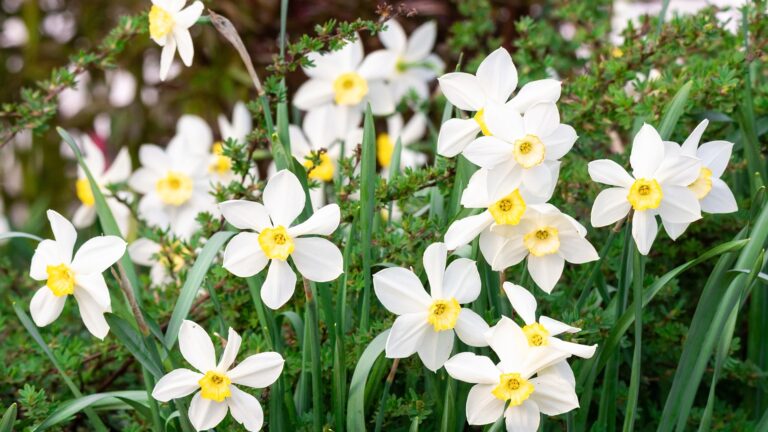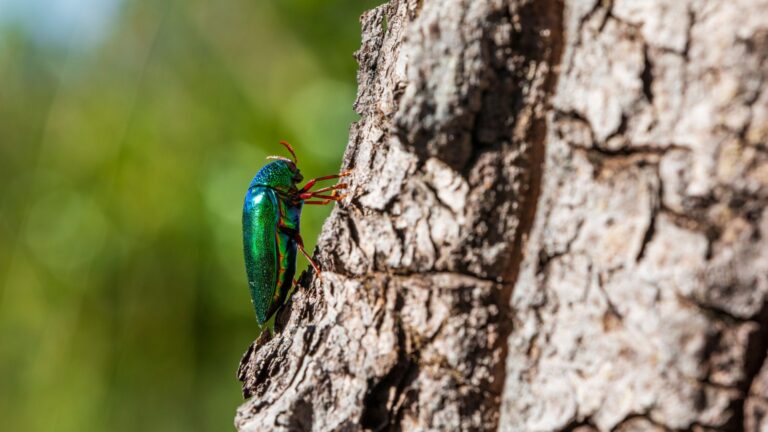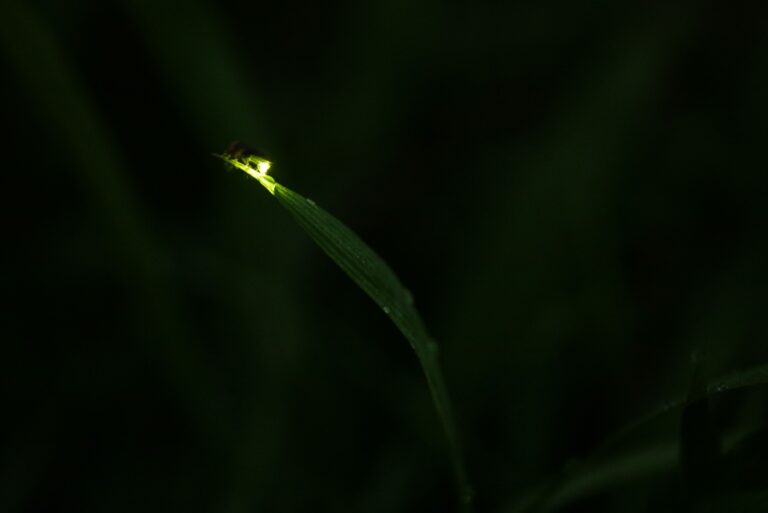Discover 18 Smells That Mosquitoes Absolutely Hate
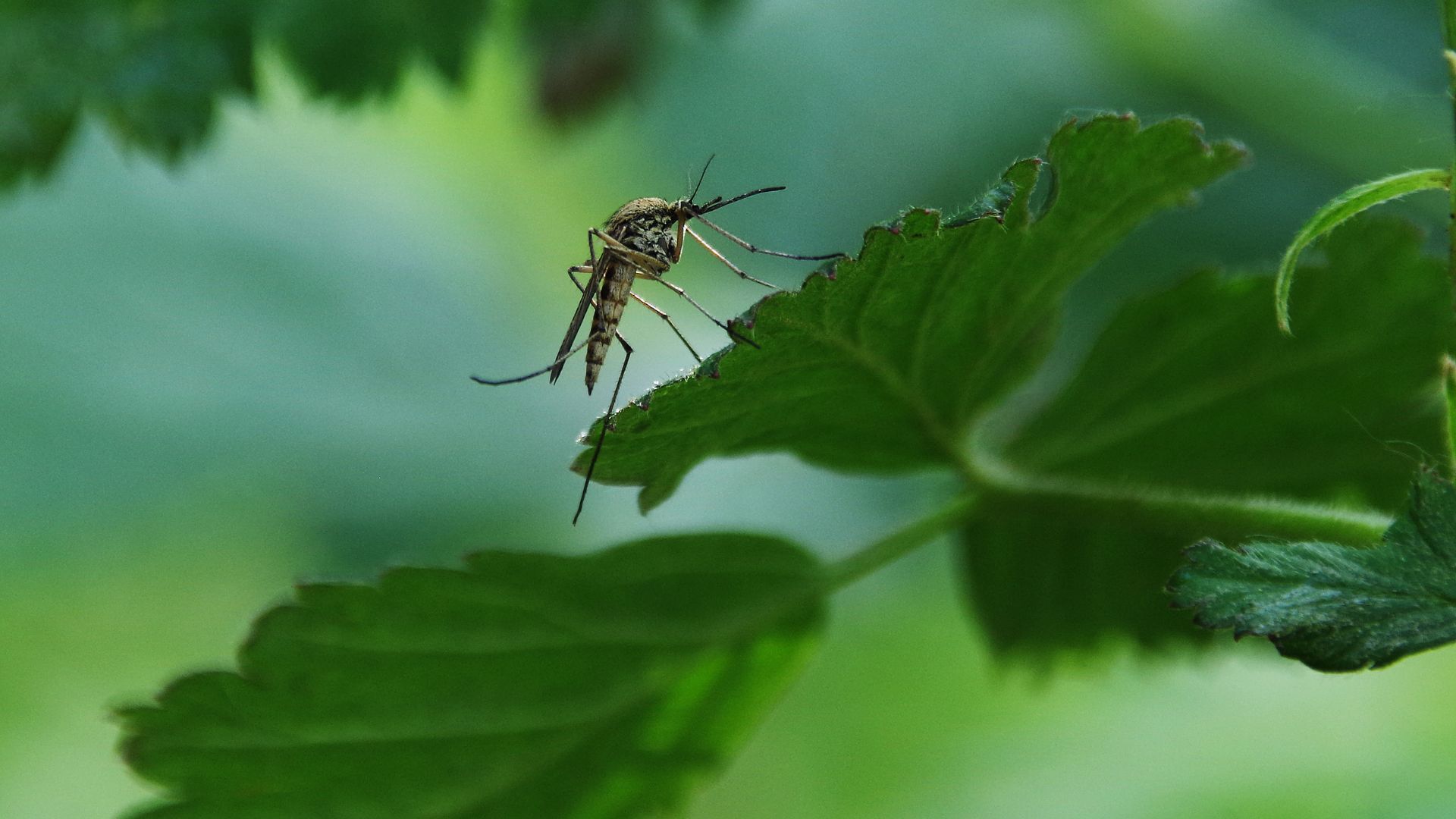
Summer evenings are made for relaxing—until the mosquitoes show up. These little buzzers don’t just bring itchy bites; they also carry potential health risks. But don’t reach for the chemical sprays just yet. Nature has your back with plenty of scents that mosquitoes absolutely hate.
Think lavender, lemon balm, basil, and eucalyptus—fragrant options that double as beautiful garden additions. Many of these can be used in oils, candles, or grown right in your yard.
With 18 effective natural options, you’ve got no shortage of ways to enjoy the outdoors without the itchy aftermath. Your garden can smell great, look great, and stay mosquito-free all at once.
1. Lemon Eucalyptus Oil Drives Them Away
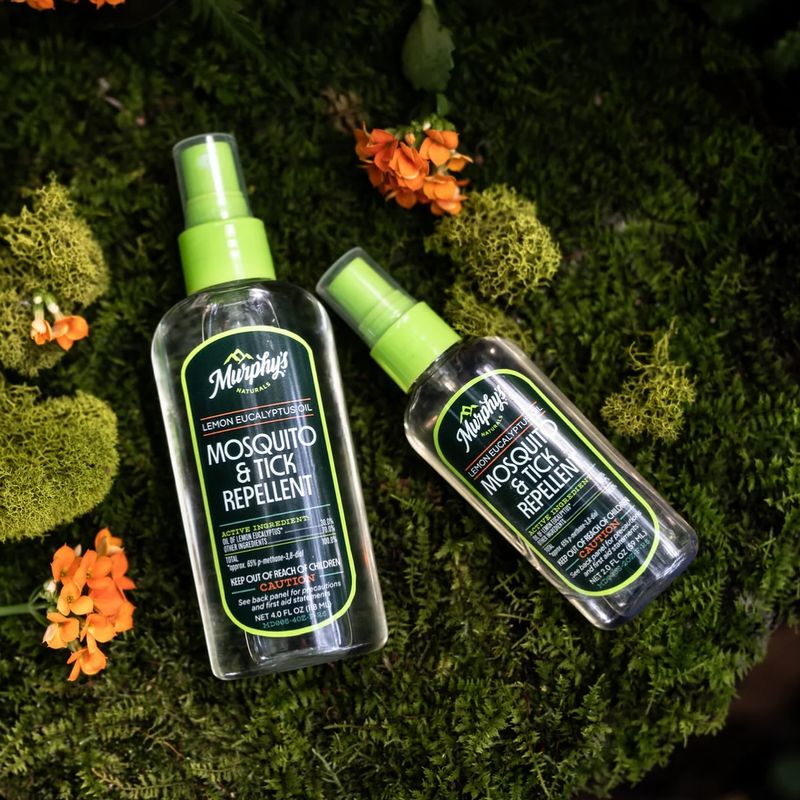
The strong medicinal scent of lemon eucalyptus confuses mosquitoes’ sensitive receptors. They rely heavily on these receptors to find their next meal, and this powerful aroma disrupts their hunting abilities.
You can add a few drops to unscented lotion or mix with water in a spray bottle. This creates an effective barrier around your patio or deck during outdoor gatherings.
I’ve found this works surprisingly well even in humid conditions when mosquitoes are typically most aggressive. The CDC even recognizes it as an effective natural alternative to DEET.
2. Citronella Candles: The Classic Repellent
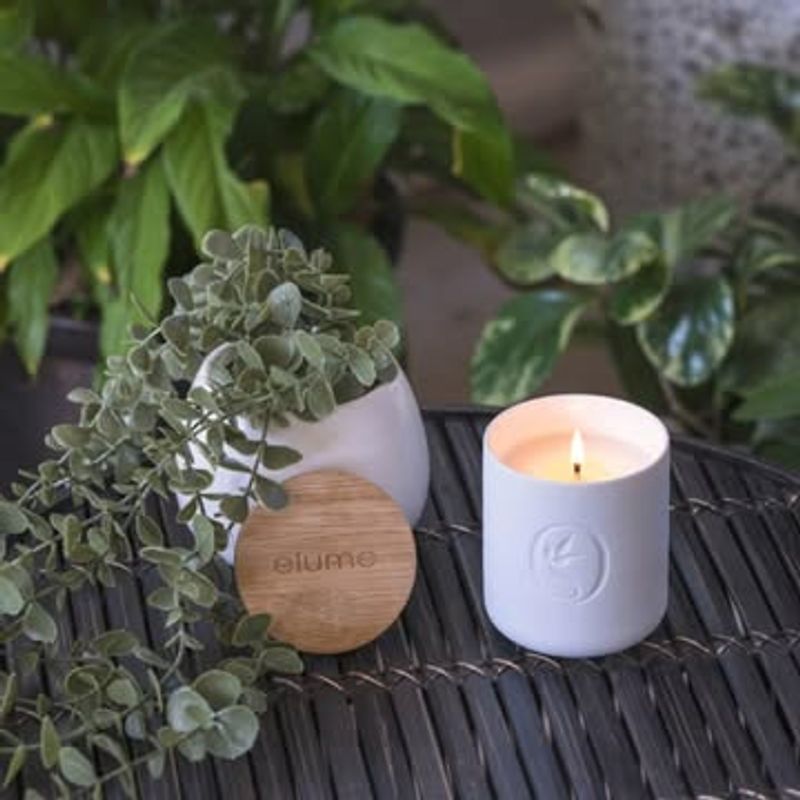
The distinctive smell overwhelms mosquitoes’ senses and masks the human scents they’re attracted to. When burned, citronella releases a compound that creates a protective bubble around your space.
Place several candles around your outdoor seating area, positioning them strategically to create overlapping zones of protection. For best results, light them about 15 minutes before you plan to be outside.
During my last backyard barbecue, we surrounded the patio with these candles and enjoyed a rare evening without constant swatting. Just make sure to get high-quality ones with real citronella oil.
3. Lavender Flowers Keep Bugs At Bay

The sweet floral scent that humans find so calming actually disrupts mosquitoes’ ability to locate targets. Their sensory receptors become overwhelmed by lavender’s complex aromatic compounds, sending them looking elsewhere.
Growing lavender plants near windows and outdoor seating areas creates a natural barrier. You can also make sachets of dried lavender to place in problem areas around your home.
My potted lavender on the patio has made a noticeable difference in mosquito activity. As a bonus, the beautiful purple blooms add a touch of color while serving as functional pest control.
4. Peppermint Oil Packs A Powerful Punch
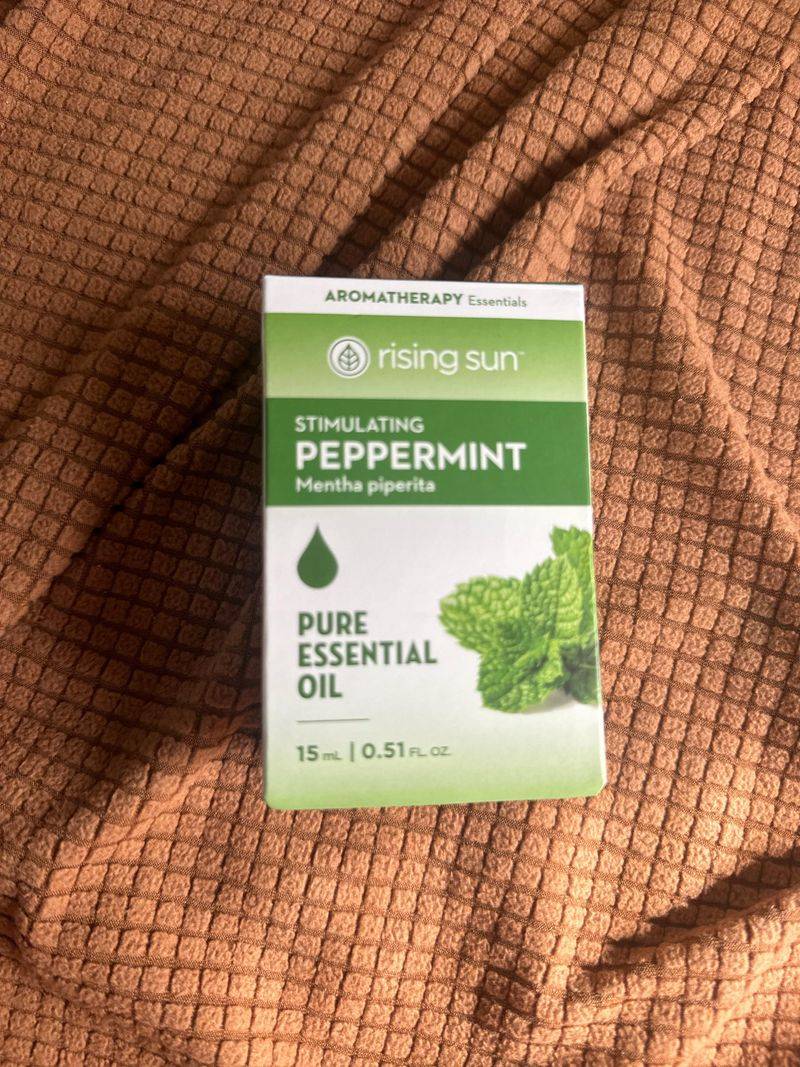
The menthol component in peppermint creates an intense sensory experience that mosquitoes avoid at all costs. Their delicate sensory organs can’t handle the strong, cooling compounds that give peppermint its distinctive smell.
Dilute peppermint oil with water in a spray bottle and apply to your skin or around doorways and windows. Some people also soak cotton balls in the solution and place them strategically around outdoor areas.
The cooling sensation on my skin during hot summer days is an added benefit I wasn’t expecting. Just be careful about concentration levels – too strong and it might irritate your skin.
5. Basil Serves Double Duty In Gardens
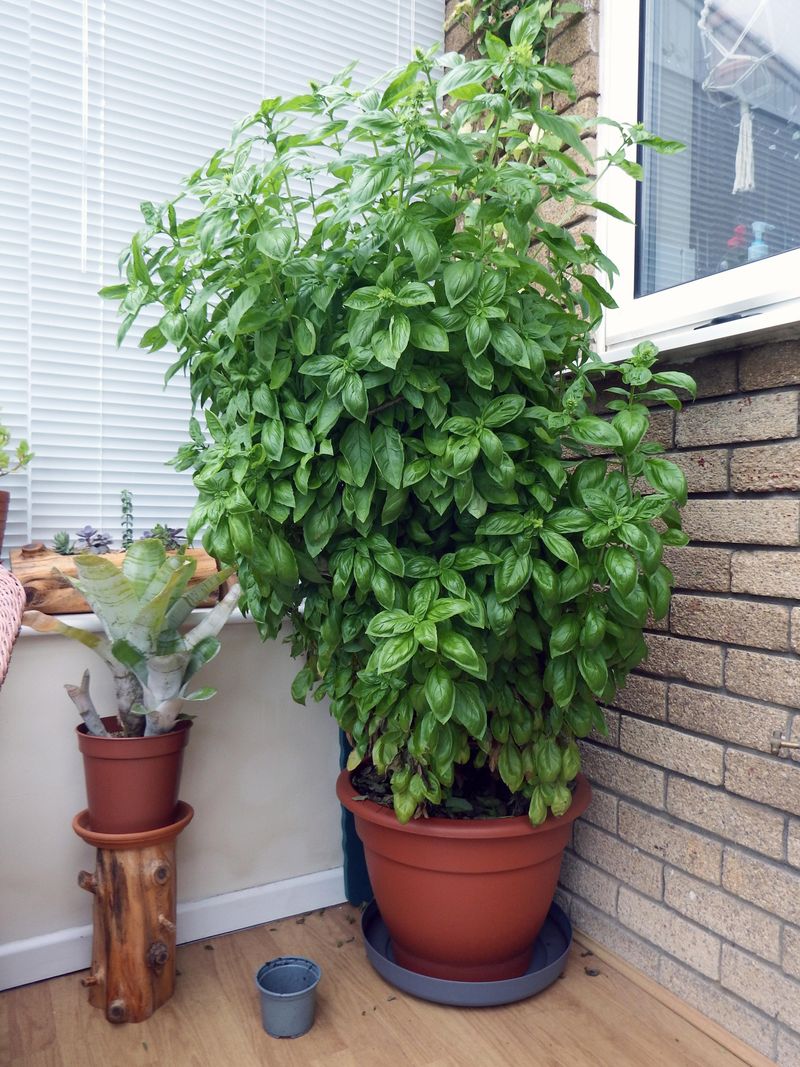
The aromatic oils in basil leaves contain four compounds that actively repel mosquitoes. These natural chemicals create an invisible shield that keeps the bloodsuckers away while adding wonderful fragrance to your space.
Growing basil in pots near entry points or outdoor seating areas provides continuous protection. You can also crush a few leaves and rub them on exposed skin for quick, temporary relief when outdoors.
My kitchen windowsill herb garden has become my first line of defense against mosquitoes that try to enter. The Italian large-leaf varieties seem particularly effective, based on my experience.
6. Rosemary Smoke Creates A Protective Barrier
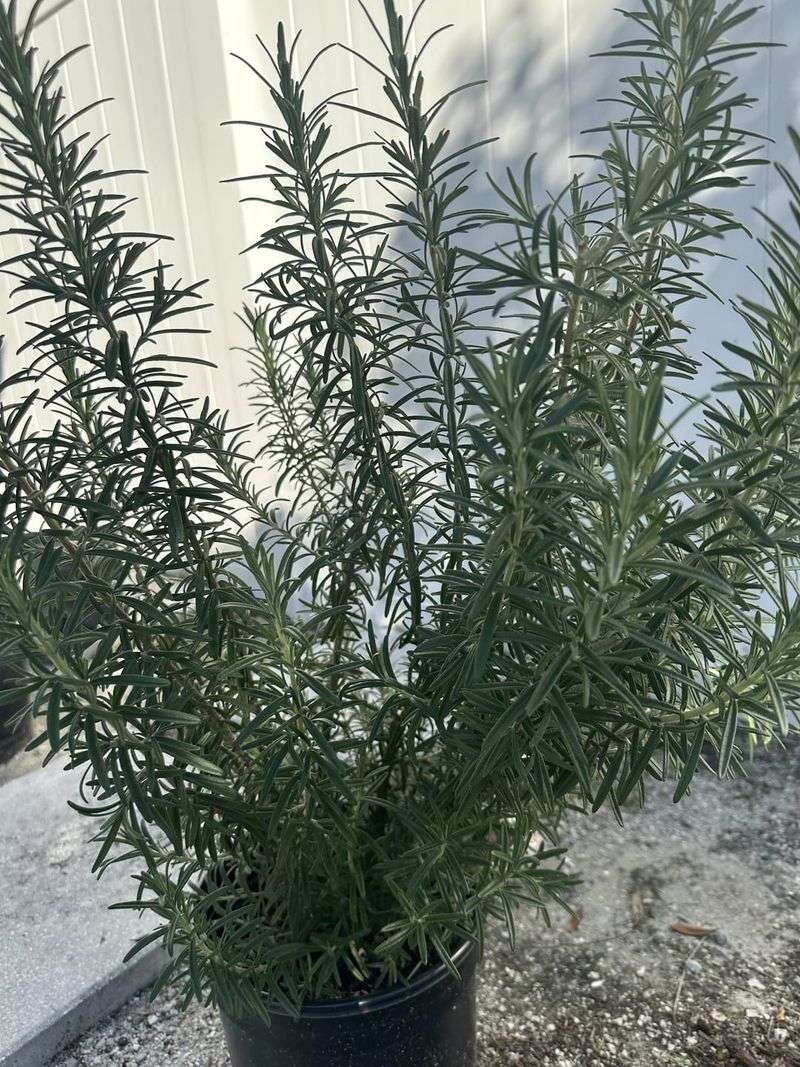
The intense woody aroma contains compounds that mosquitoes find particularly offensive. When burned, rosemary releases these compounds into the air at higher concentrations, creating an effective mosquito-free zone.
Toss a few sprigs of rosemary onto hot coals when grilling or create bundles for your firepit. For indoor protection, simmer rosemary in water on the stove to release its protective scent throughout your home.
During camping trips, I’ve tossed rosemary branches into the campfire and noticed significantly fewer mosquitoes buzzing around. It’s become an essential part of my outdoor cooking routine.
7. Garlic’s Sulfur Compounds Scare Them Off
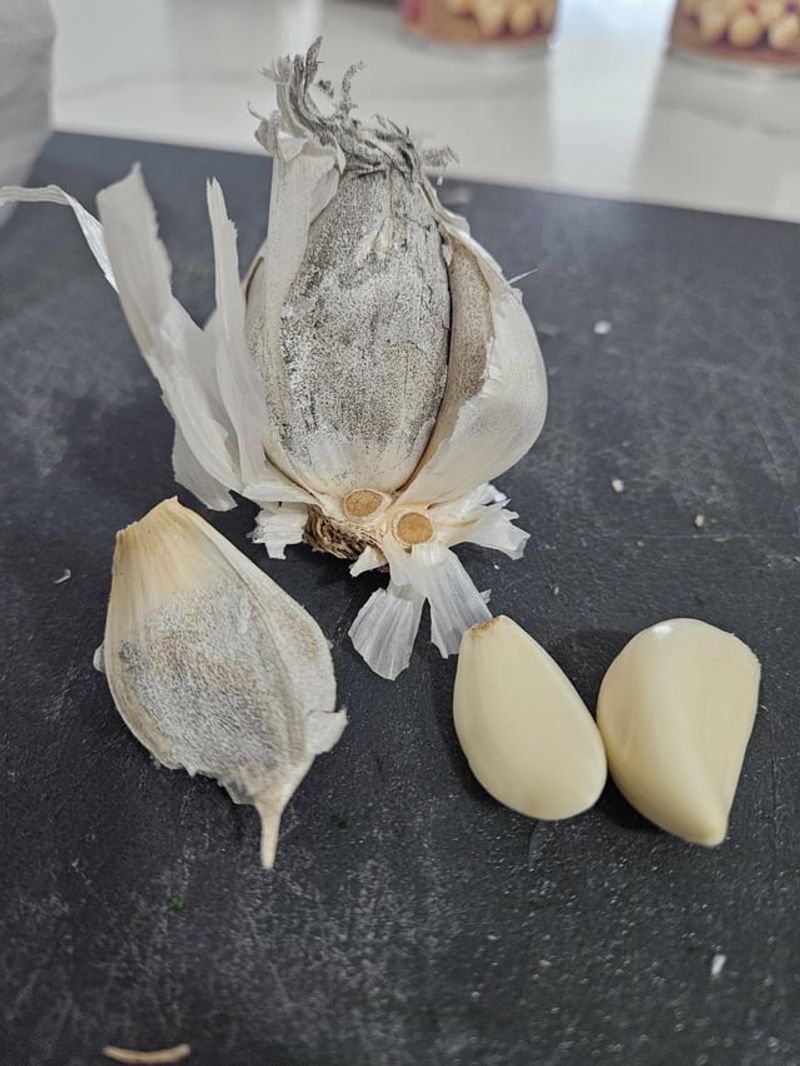
The pungent aroma comes from allicin, a sulfur compound that enters your bloodstream and is eventually released through your pores. Mosquitoes detect this compound and actively avoid people who’ve consumed garlic.
Adding extra garlic to your diet during mosquito season provides internal protection. For external use, crush garlic cloves and mix with water to create a spray for your yard or patio area.
After increasing my garlic intake for a week, I noticed fewer bites during my evening walks. While it won’t make you completely immune, it definitely seems to reduce your attractiveness to these pests.
8. Lemongrass Contains Natural Citronella
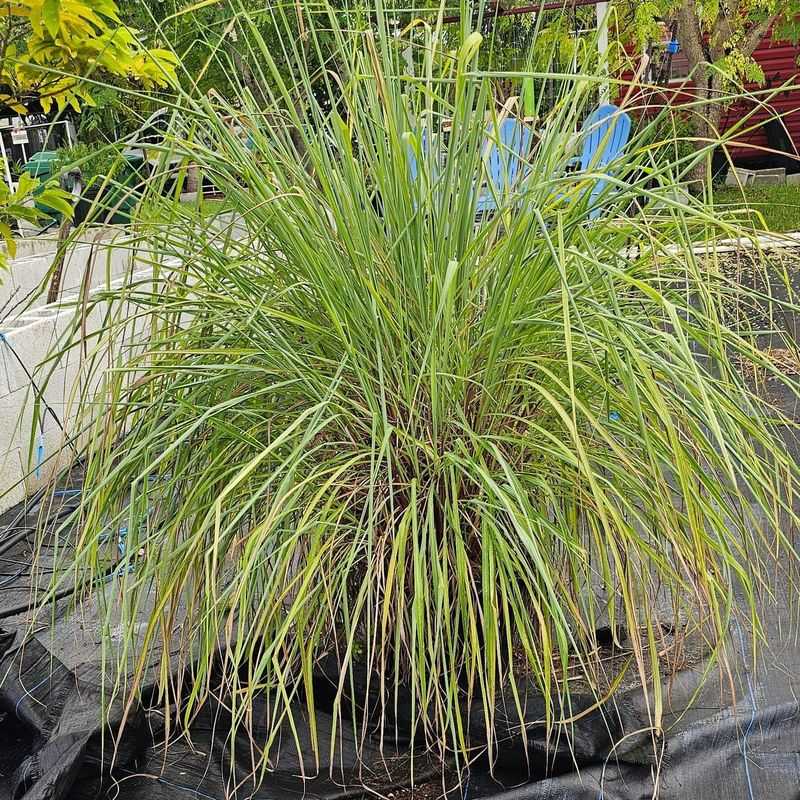
The natural citronella oil in lemongrass creates a powerful barrier that confuses mosquitoes’ sensory abilities. They struggle to locate potential hosts when this strong scent is present in the environment.
Growing lemongrass plants around your property, especially near windows and doors, provides continuous protection. The tall, grassy plants make attractive landscape features while serving a practical purpose.
My lemongrass patch near the patio has grown impressively over the years, and I’ve noticed our mosquito problem diminishing each summer. The plants also provide fresh stalks for cooking delicious Thai curries – a wonderful bonus!
9. Cedarwood Oil Has Ancient Repellent Properties

The distinctive woody aroma contains compounds that mask the carbon dioxide and lactic acid that mosquitoes use to find us. This confusion makes it difficult for them to locate their next blood meal.
Apply diluted cedarwood oil to your skin before outdoor activities or use cedar mulch around your garden and yard. Cedar closet liners and chests also help keep indoor areas mosquito-free.
The earthy scent reminds me of hiking through forests, making it one of my favorite repellent options. Unlike some other essential oils, it’s generally mild enough for sensitive skin when properly diluted.
10. Marigolds Stand Guard In Gardens

The bright flowers contain pyrethrum, a compound used in many commercial insect repellents. Mosquitoes detect this natural chemical and tend to stay far away from areas where marigolds grow abundantly.
Planting marigolds around the perimeter of your garden or in containers on your porch creates a colorful barrier. Their strong scent works continuously throughout the growing season without any effort on your part.
The cheerful orange and yellow blooms have brightened my garden while significantly reducing the mosquito population. They’ve become my go-to companion plants for vegetable gardens and outdoor seating areas alike.
11. Tea Tree Oil Offers Powerful Protection
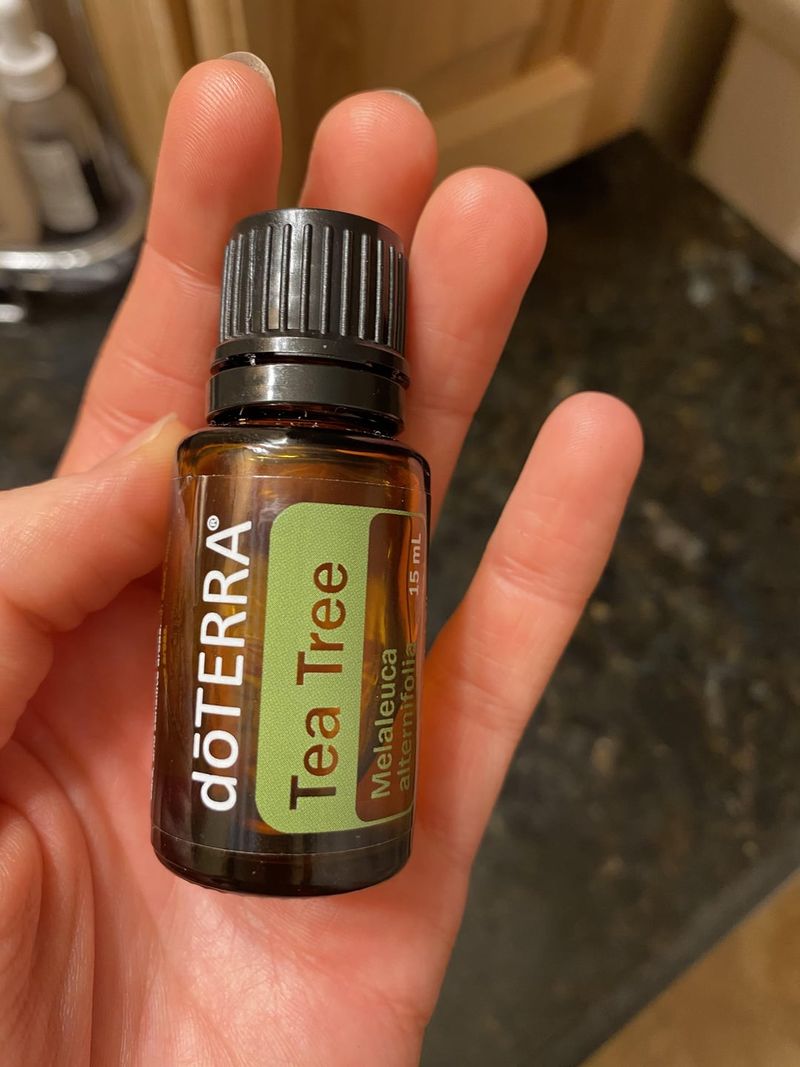
The strong medicinal smell contains terpenes that disrupt mosquitoes’ sensory reception. These compounds effectively jam their ability to detect the human markers they use to find their next meal.
Mix a few drops with a carrier oil or unscented lotion before applying to your skin. You can also add it to homemade cleaning solutions to treat surfaces around your home where mosquitoes might rest.
A camping friend taught me this trick years ago, and it’s been part of my outdoor kit ever since. The distinctive smell takes me back to those wilderness adventures every time I use it.
12. Catnip Proves More Effective Than DEET
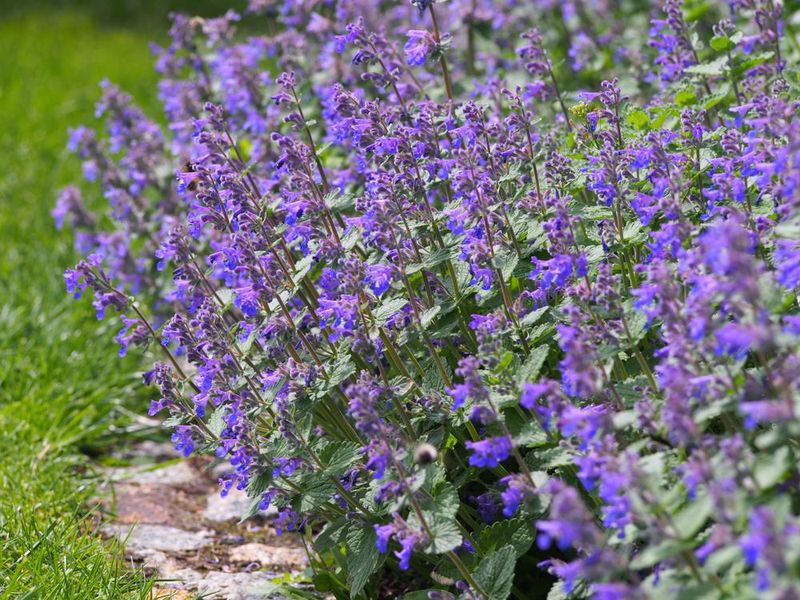
The essential oil in catnip contains nepetalactone, which research shows is ten times more effective than DEET at repelling mosquitoes. This natural compound creates a powerful barrier that few mosquitoes will cross.
Growing catnip plants around your yard or crushing the leaves to release their oils provides excellent protection. You can also brew strong catnip tea, let it cool, and use it as a spray.
Our family cats certainly appreciate the plants around our patio, while we enjoy fewer mosquitoes. Just be prepared for neighborhood felines to show increased interest in your garden if you plant it!
13. Neem Oil Creates An Uninviting Environment
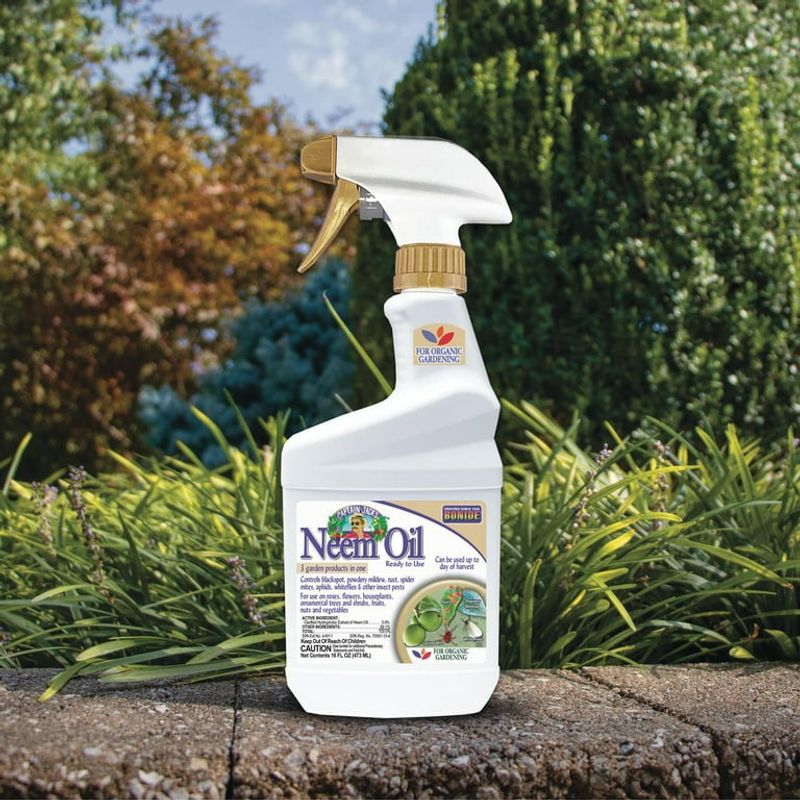
The bitter compound azadirachtin disrupts mosquitoes’ feeding and growth patterns, making areas treated with neem highly unattractive to them. They avoid landing on surfaces where this natural pesticide is present.
Dilute neem oil according to package directions and spray it around your yard, focusing on areas where water might collect. It’s also effective when applied to fabric surfaces like patio furniture cushions.
The earthy smell isn’t my favorite, but the results are worth it. I’ve found it particularly useful for treating areas where traditional repellents might wash away quickly, like around pool decks.
14. Clove Oil Sends Mosquitoes Packing
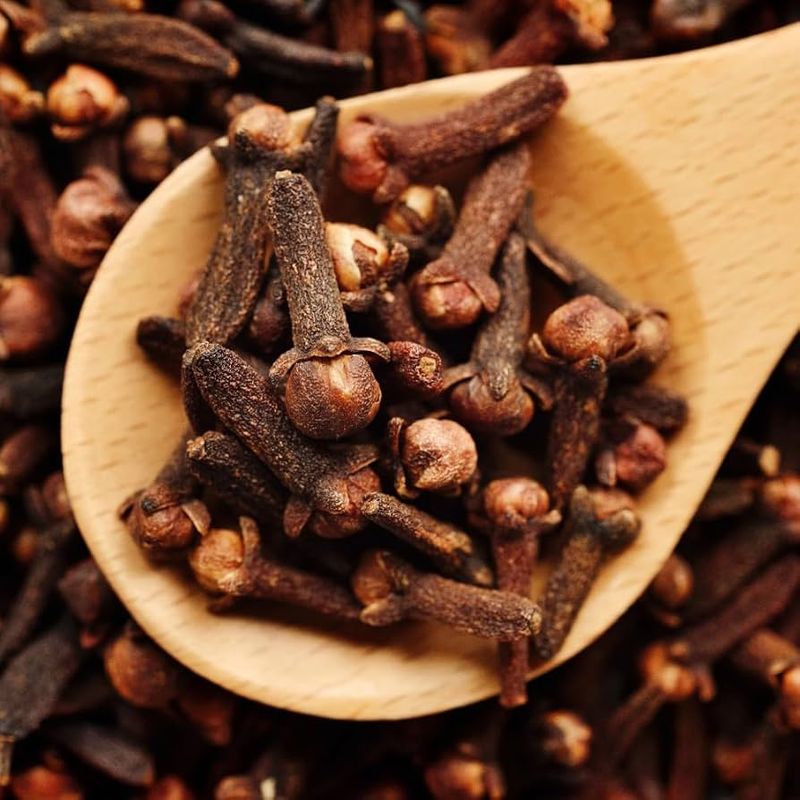
The eugenol in cloves creates a potent barrier that mosquitoes avoid crossing. This compound overwhelms their sensory receptors, making it difficult for them to detect the carbon dioxide and body heat that normally attract them.
Add a few drops to candles, diffusers, or mix with a carrier oil for skin application. Clove-studded oranges or lemons placed around outdoor areas also provide effective protection during gatherings.
The spicy scent reminds me of holiday baking while keeping mosquitoes at bay – a pleasant combination! Just be sure to dilute properly, as concentrated clove oil can irritate sensitive skin.
15. Geraniol In Geraniums Naturally Deters Bugs
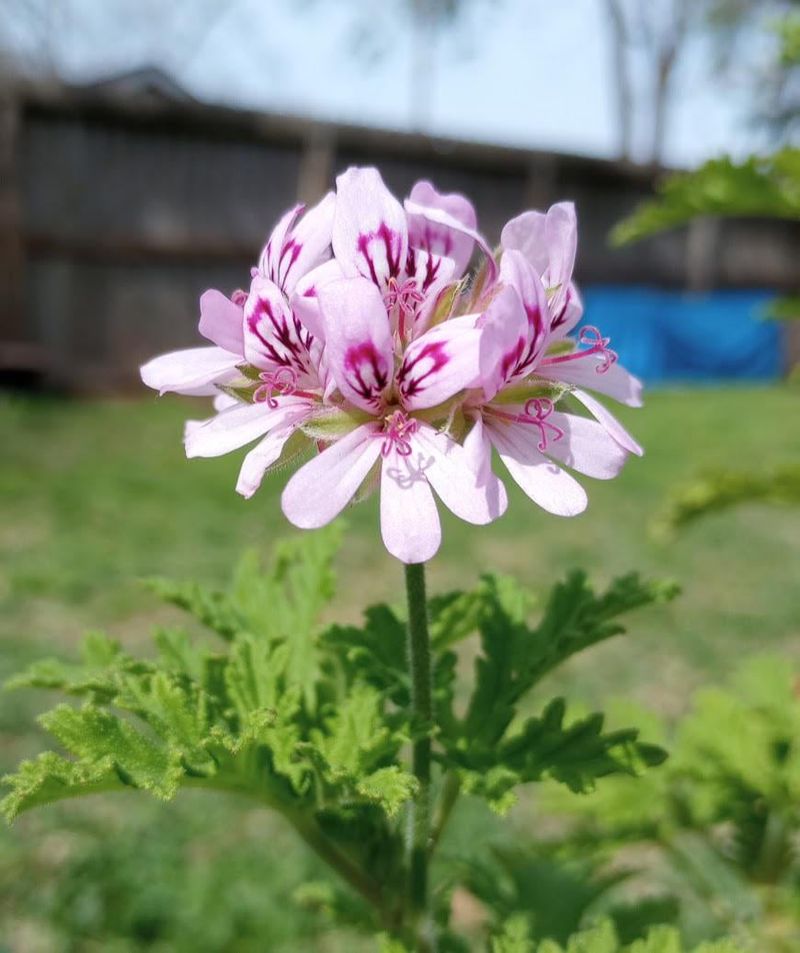
The fragrant oils in certain geranium varieties contain high levels of geraniol, a compound that actively repels mosquitoes. This natural chemical disrupts their ability to locate humans by scent.
Planting mosquito-repellent geraniums in containers near doors, windows, and outdoor living spaces provides continuous protection. Crushing a leaf and rubbing it on skin offers quick temporary relief when needed.
The citrusy-rose scent of these special geraniums has made them a favorite on my porch. Unlike the common red geraniums, look specifically for varieties labeled as “mosquito plant” or “citronella geranium” for best results.
16. Thyme Releases Powerful Protective Compounds

The essential oil in thyme contains thymol, a compound that effectively jams mosquitoes’ sensory reception. When they encounter this strong aroma, they become disoriented and unable to locate potential hosts.
Growing thyme in your herb garden or in containers around seating areas provides continuous protection. You can also make a strong thyme tea, cool it, and use as a skin spray before outdoor activities.
My herb spiral features thyme prominently near our outdoor dining area, and we’ve noticed significantly fewer mosquitoes during summer meals. The aromatic herb enhances both our food and our comfort.
17. Cinnamon Oil Offers Surprising Effectiveness
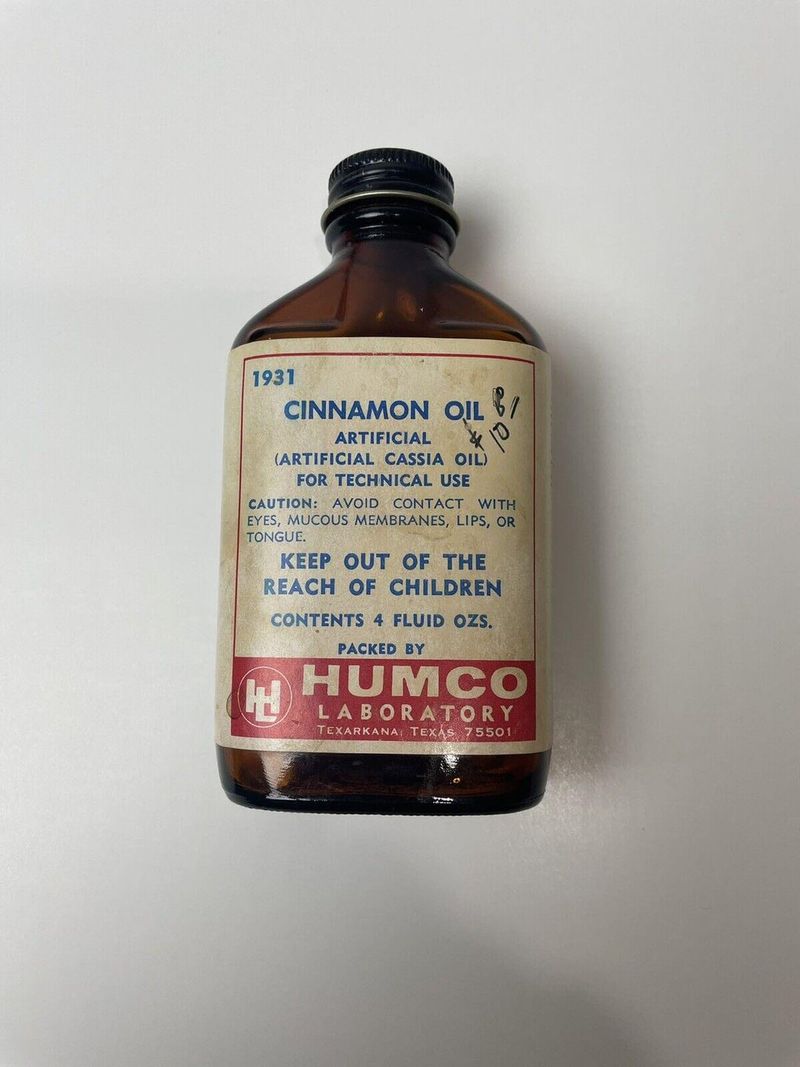
The compounds in cinnamon oil attack mosquito eggs when applied to standing water and repel adult insects with their strong aroma. This dual-action approach makes it particularly effective for comprehensive mosquito control.
Add a few drops to spray bottles with water for application around your yard or home. For standing water that can’t be eliminated, a tiny amount can help prevent larvae development.
The warm, spicy scent creates a pleasant atmosphere while keeping mosquitoes away. I’ve started using it on our covered porch, and evening gatherings have become much more enjoyable without the constant swatting.
18. Vanilla Extract Creates A Sweet Deterrent

The sweet aroma masks the body chemicals that attract mosquitoes, making it harder for them to locate you. While not as powerful as some essential oils, it provides a pleasant alternative for those sensitive to stronger scents.
Mix pure vanilla extract with water or coconut oil and apply to exposed skin. The diluted solution won’t make you sticky but will provide a barrier against mosquitoes for about 30 minutes.
This gentle option has become my go-to for evening walks when I don’t want to smell like citronella or other stronger repellents. The subtle vanilla scent is barely noticeable to humans but still effective against mosquitoes.

